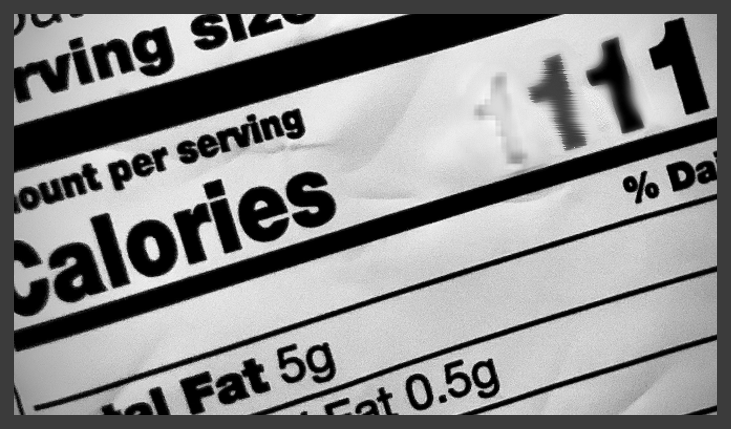I am beginning to believe that we have (as a society and individuals) put too much emphasis on diet. I am guilty of doing the same in my life and in previous posts. I have spent the last three and a half years being vegan. I will make it to year four, but I do not predict that I will make it to year five. Why? Well, simply put, being vegan does not align with my goals as strongly as it once did. I started my journey in a much different place than I am now, and while I could happily live this lifestyle till the end, this is no longer a limitation that solely brings me strength like it once did. I want to evolve, I want to grow, so my habits must be scrutinized and adapted.
I want to mention early now that I do not plan on talking much more about diet until I can provide evidence to support my claims. I have been very anecdotal, and I must avoid spreading false information. Some of the topics around diet that I would like to post about include how diet relates to sleep, hunger hormones, insulin, food volume, and internal calorie storage. So much of what is taught is slanted with trendy fads and marketing bias. Food is a big industry and there is a large amount of propaganda wherever there is a large amount of money. I am swayed by what I think I know and ignorant of what I yet do not. Ultimately, the human body is complex, but I no longer believe diet needs to be. Belief alone however will lead me down a slippery slope. Take every advice with a grain of salt–every source has bias. Here are some of my ideas:
The body is a complex system, but I no longer want to complicate food. The primary goal of eating is to provide nutrients. As mentioned previously, these nutrients are broken down into two main categories: macro and micro.
Not all foods are created equally, but I believe (here is that belief I was talking about) that the quality of food is more important than the food itself–grass fed vs fast food, olive oil vs fryer oil.
The word “quality” itself is very muddy. In this context, by “quality,” I mean food at its least adulterated. Artificial ingredients, toxic chemicals, added hormones, carcinogens, or any ingredients that cause inflammation, I will continue to avoid to the best of my ability, and I can confidently say that you should do your best to avoid them too. For example, if I see that my vegan burgers have ingredients that are known to be inflammatory, I will search for an alternative. Additionally, if I know I am allergic to milk, I will avoid milk. If I find that I digest milk similarly to most other foods, it will not be excluded from my diet. I am of the opinion now that food does not need to be as complex as we make it. Simply, I will eat the foods that give my body the nutrients it needs and limit anything more. The foods that allow me to balance my nutrients and maintain a healthy body composition are what I will be focusing on. It is clear that not all foods digest equally. I am aware that 100g of carbs from a soda is not going to digest the same as 100g of carbs from quinoa, but this is where we can apply intelligence. My consensus is that if we can intelligently apply knowledge of how foods interact with the body and moderate consumption, we should not demonize one food or food group.
So many statistics are used to justify x over y, but most of the research on nutrition is correlative. The biggest issue with correlations is that we do not know the direction of correlation. For example, does eating fast food shorten life expectancy, or is it that someone that eats less fast food tends to have a longer life expectancy because they tend to be more health conscious. Fast food is known to include inflammatory ingredients, be calorie dense, be high in saturated fat, and be high in sodium (I want to do more research on saturated fats and sodium intake because these two nutrients are controversial, and I have little substantial knowledge of the two). Knowing what fast food is, if we moderate consumption, balance macronutrients, and supplement the vitamins we are missing, how less healthy would someone be when compared to someone on a vegan diet doing the same? Immediately to me, the greatest separation in these two diets is satiation. 1000 calories of meat and cheese looks a lot different than a 1000 calorie salad with veggies and tofu. If we account for satiety, how would health vary between the two? I find the McDonald’s diet experiments and Krispy Kreme diet experiments provide great evidence for calories-in-calories-out, but where they would be more interesting is to compare the longevity of these diets with other “healthier” diets, controlling for nutrient intake.
This is making me think about my own experience with food. One of the greatest advantages of veganism for weight loss is that many foods on the vegan side of the spectrum have a low calorie density and high water content. As someone that can eat a large volume of food, this aspect has played to my advantage. In addition to high volume, eating high protein foods has also changed my relationship with hunger. The body can digest carbs and fat more efficiently than it does protein. Simply stated, this is why carbs are great for runners and protein is good for weight loss. High volume = more food to fill the stomach. High protein = more time and energy to digest. I am sure (here is that belief again) that this relationship is also why so many find success with low carb, keto diets. If we remove carbs, we are left with only protein and fat. Given only these two, we are more inclined to source most of our calories from protein. Lean meats are mostly protein and meat is commonly eaten alone. Have you ever eaten butter, mayonnaise, olive oil, or beef tallow alone? Simply put, a 90-10 meat to fat ratio is often eaten. A 90-10 fat to meat ratio is not so common. All of this to say that keto diets are ultimately high protein diets. We do not need to be vegan or keto to lose weight. If we struggle to remain full, we might more simply need to increase our overall food volume and protein intake.
Assuming we can control all the modern additions and degrading practices, why would good quality meat harm an omnivore? Maybe I am trying to convince myself of reasons to quit my diet, but I ask myself, why would our bodies evolve to be intolerant to meat? While the universe provides us with many seemingly illogical results, using Occam’s razor and lineal logical thinking, this seems irrational. Thinking alone proves nothing, but the evolutionary biology of nutrition must be considered. Man has been eating meat before man, so what would make us intolerant to meat? Is the intolerance a result of the modern sourcing or processing of the meat? Is it also possible that extending life expectancy exposes us to be more aware of a previously negligible effect? When systems are further optimized, their inefficiencies are amplified and bottlenecks are revealed. It is also possible that the effect of meat is minimal but exponential. The ill effects might only significantly compound after many years. The answers to these questions await many longitudinal studies.
Exercise and a balanced diet are the key. What? I know that you have heard this message before, okay! What I want to emphasize today is that a “balanced diet” might be more than salad and whole grains. Veganism can be a balanced diet but so can a carnivore diet. However, both of these diets require some level of supplementation to be balanced. The best diet therefore would be the diet that naturally supplies every nutrient. Needs vary based on the individual, so the “perfect diet” must be personalized. Maybe the perfect diet for you is one with heavy supplementation if that is the one that makes you happiest and allows you to stay consistent.
I have been thinking about the role diversification can play in many areas of life. I want to dedicate an entire post to this significance of diversification throughout life, but I will introduce the idea here now. Diets that are consistently ranked highly are all diverse diets–they provide nutrients for many different food sources. Going back to what I said in the previous paragraph, a diet must be personalized, but the best diet would be the diet that supplies the most nutrients and the least toxins. Since the diets that supply the most nutrients tend to be diverse, diversity might be a key to living a healthier life.
Nutrition can be broken down into a numbers game of deficiency and surplus. I recently learned about the “Upside-down U curve”. Similar to a bell curve, a “U curve” represents an optimal balance. Often, the best solution is somewhere in the middle of its two extremes. Both too little or too much of something can become detrimental. The same goes with nutrition. Too little iron and you become anemic. Too many calories and you become obese. Finding balance is important. I recently had my blood tested for nutrient deficiency. I am still awaiting the results… but I am trying to improve my nutrient balance–referencing what I said earlier about supplementation, like many popular diets, veganism has its limitations…
I want to conclude with this: I have taken a step back from the information right in front of me, and I see food for what it is: a bundle of nutrients. Find the bundles that give you what you need and most of what you want, and I am confident that you will live a healthy life (there is that belief again). Whenever you see statistics, marketing, or “THE NEW WAY THAT ALL THE MODELS ARE GETTING IN SHAPE THIS SUMMER,” take a moment to consider the simple bundles.
As I alluded to earlier in this post, I have decided that this will be the last of the “calories” series; however, this will most definitely not be the last time I talk about health or nutrition. In the future, I want to apply more focus to my health related posts and supply concrete science alongside my ideas. From this my blog becomes more credible and you receive more meaningful posts.
I’m out of time. Although I rambled more than I usually do this week, I am proud of some of the ideas I shared with you today. Please take with you whatever sticks, and I will do more work to provide you with only the best, most accurate information. A little bit of anecdotal evidence is good too; it keeps it fun.
As always, it has been a pleasure, Tristan from HQ out!


